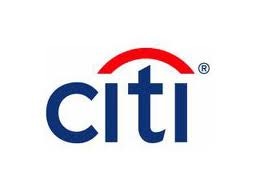Three hours into trading, Citigroup Inc. (NYSE:C) is trading down 1.1%, after opening down 0.8%. The imminent release of the Federal Reserve’s Open Market Committee meeting minutes are keeping the markets mixed in general, and the big banks depressed in particular.
Where the drama never ends
At 2 p.m. today, the Fed will release the minutes of its June 19 FOMC meeting. Even though chairman Ben Bernanke gave an official statement that day, with an official guidance statement concurrently released, until later today, no one will have had the full-blown minutes of the meeting to pore over.
And investors and the media love nothing more than to dive in and see what they can parse out of any of the behind-the-scenes maneuverings that may have gone on. If life is like a box of chocolates, so are FOMC meeting minutes: You never know what you’re going to get, even three weeks past the sell-by date. Hence, it makes the markets nervous when this box of chocolates gets opened.
The return of boring banks?
Newly proposed capital rules designed to make banks safer, and less likely to need bailouts in time of crisis, are further depressing each of the Big Four’s stocks today. Like B of A, Citigroup Inc. (NYSE:C), Wells Fargo & Co (NYSE:WFC), and JPMorgan Chase & Co. (NYSE:JPM) are also trading down.
Yesterday the Fed, the Office of the Comptroller of the Currency, and the Federal Deposit Insurance Corporation proposed that banks double the amount of capital they hold “as protection against every loan, investment, building security, and other asset on their books — not just the risky ones,” according to today’s Wall Street Journal.
And the eight biggest bank-holding companies in particular would be required to increase their leverage ratios to 5%. Right now, all global regulators require is a leverage ratio of 3%. Analysts at Keefe, Bruyette, and Woods see capital shortfalls at many banks, including Citigroup Inc. (NYSE:C), JPMorgan, Morgan Stanley (NYSE:MS), and Goldman Sachs Group, Inc. (NYSE:GS), but have concluded that B of A and Wells Fargo “currently meet the 5% threshold for bank-holding companies.”
What does all this means for banks? The more capital banks are required to hold, the less they have to lend out, which hurts profits. The silver lining is that the proposed compliance date is 2018, so banks have plenty of time to prepare. Is banking about to become more boring, the way so many people said it should in the wake of the financial crisis? It looks that way, but in the end, this is good news for investors and the country at large.
Stable banks are in the best interests of everyone. And even though one could argue that being too big to fail has its advantages, like cheaper funding costs driven by the implied guarantee that such banks will never be allowed to fail, shareholder value can still be virtually, if not completely, destroyed in a bailout situation.
Luckily for Citigroup Inc. (NYSE:C) investors, they have a CEO at the helm — Michael Corbat — who undesrtands the notion that the most important moves he can make are the ones that make the bank safely profitable and keep it healthy for shareholders and customers over the long term.
The article Citigroup Is About to Get Boring originally appeared on Fool.com and is written by John Grgurich.
Fool contributor John Grgurich owns shares of Goldman Sachs, Citigroup Inc. (NYSE:C), and JPMorgan Chase. Follow John’s dispatches from the not-so-muddy trenches of high-finance and big-banking on Twitter @TMFGrgurich. The Motley Fool recommends Goldman Sachs and Wells Fargo. The Motley Fool owns shares of Citigroup Inc. (NYSE:C), JPMorgan Chase, and Wells Fargo.
Copyright © 1995 – 2013 The Motley Fool, LLC. All rights reserved. The Motley Fool has a disclosure policy.




